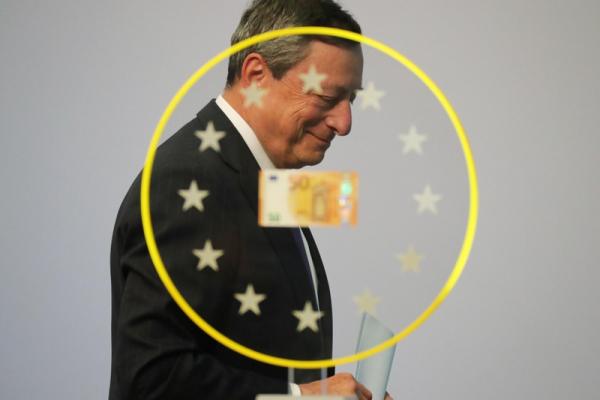(Bloomberg) -- Explore what’s moving the global economy in the new season of the Stephanomics podcast. Subscribe via Pocket Cast or iTunes.
European Central Bank President Mario Draghi’s appeal to governments to spend more to support the economy appears to be falling on deaf ears.
The fiscal boost from extra spending will be about 0.4% of euro-area economic output next year, according to HSBC’s analysis of proposed budgets. That’s less than half the budget boost needed to bring growth close to its potential, said Fabio Balboni, a senior economist at HSBC.
While there could be a bit more fiscal slippage, it still won’t be enough. High-debt countries like France, Italy and Spain don’t have much room to spend and Germany looks reluctant to embark on a major fiscal expansion, Balboni writes in the report.
The ECB has faced some pushback against its call on countries like Germany to loosen the purse strings. Draghi rolled out monetary stimulus last month that included more negative interest rates and renewed quantitative easing, but said the effectiveness of policy hinges on increased government spending. He’ll likely repeat this mantra at his final press conference as president on Thursday.
German Finance Minister Olaf Scholz has tried to deflect the pressure to boost spending. Speaking at the annual International Monetary Fund last week, he insisted his country has already done a lot and the economic situation doesn’t require a rushed fiscal response.
“This leaves the ECB in a corner,” Balboni said. Draghi’s successor, Christine Lagarde, is expected to “stand a better chance of convincing surplus countries to spend more. But ultimately, she has no tools to achieve this, suggesting to us that monetary policy will still have to do the heavy lifting to support growth.”
